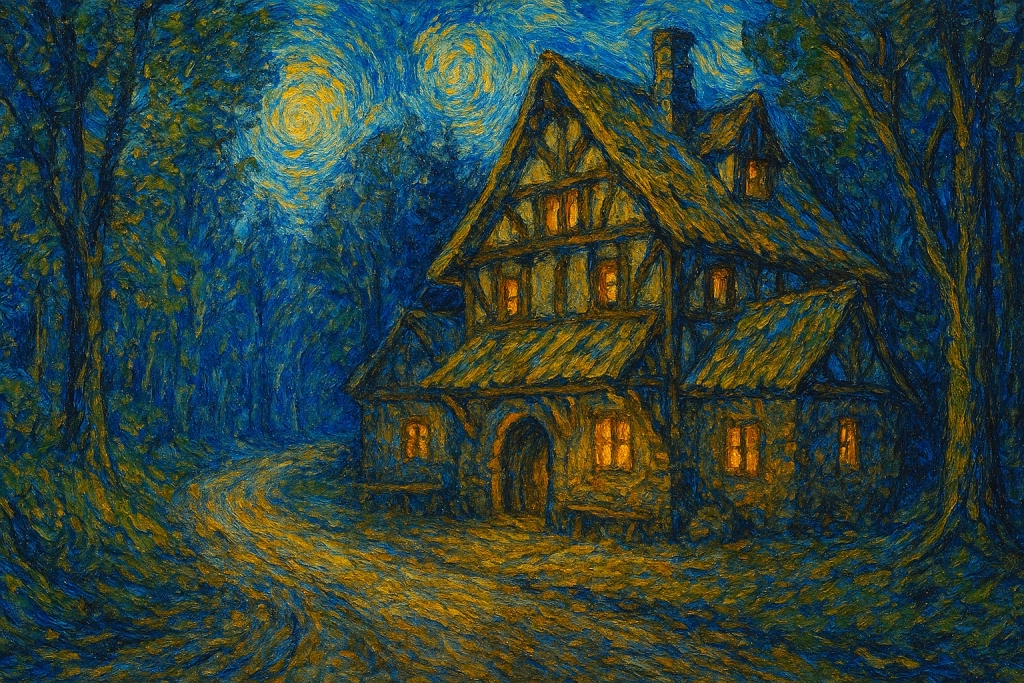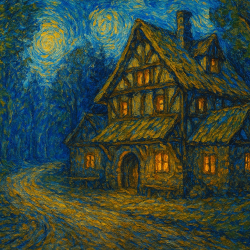I have long believed that America’s future must be rooted in the same Christian foundation as our past. For several generations, we have tried an allegedly neutral agnosticism, and it has led to a country where traditional values are mocked while every deviant idea is celebrated. Our nation is plagued with depression, divorce, drug addiction, promiscuity, mental illness, and hopelessness. Let’s try something different.
There is no such thing as a values-neutral public square. The de facto imposition of a secular, atheistic worldview on civil society by courts and legislatures over the past century was not neutrality—it was the replacement of one civic religion with another.
Contrary to what leftists and squishy Republicans often claim, the United States was a Christian nation from the start. The original thirteen colonies had different denominational practices, but they were united in what C.S. Lewis later called “mere Christianity.” Citizens of Massachusetts, Pennsylvania, Virginia, and Georgia all agreed on the fundamental precepts of the Protestant Christian faith.
Recognizing that God is real and that He maintains both a physical and moral order to the universe is necessary for civilization. Atheists and agnostics will disagree, but where do morals come from if not from Almighty God? In a godless world, morality is simply in the eye of the beholder.
As Aaron Renn has observed, American society shifted from viewing Christianity positively to neutrally in the 1990s, and then outright negatively beginning around 2014. Today, Christianity is often portrayed as a superstition of the lower classes, while educated elites are assumed to be atheist or at least agnostic.
During this cultural shift, some Christian leaders sought compromise. Men like Russell Moore and David French have built careers preaching modern American culture to Christians, rather than preaching Christianity to the culture.
In the 1960s, even non-Christians were familiar with biblical stories and recognized allusions like the prodigal son, Jonah and the whale, David and Goliath, or Noah and the dove. Today, vast swaths of people are unfamiliar with the very tropes that once formed the backbone of our culture. Dan Williams summed this up on Twitter after watching the Charlie Kirk memorial service:
Watching the Charlie Kirk memorial, I’m struck by how extremely culturally distant I feel from this world. Everything about it feels alien – the aesthetics, symbolism, music, rituals, mythology, gurus, ideas, and norms. It feels like being exposed to the cultural and symbolic universe of a distant tribe. If I reflect on this, it occurs to me that this feeling must be symmetrical – that they must view the kind of cultural universe I inhabit as similarly alien. And in a strange way, despite opposing almost everything about this political project, this reflection makes me feel more empathy for what that project must feel like from the inside.
Peachy Keenan put it plainly:
NPR reporting on the people at the Charlie Kirk memorial like they stumbled onto the last uncontacted tribe in the Amazon.
Sunday’s memorial service for Charlie Kirk showed that a Christian America is possible again. More people heard the Gospel of Jesus Christ, clearly proclaimed, than perhaps at any moment in history. Instead of vague statements about an impersonal god, civic religion, or multiculturalism, speaker after speaker testified to Charlie Kirk’s real faith—a faith shared by millions of Americans:
Charlie looked at politics as an on-ramp to Jesus. He knew if he could get all of you rowing in the streams of liberty, you’d come to its source. And that’s the Lord.
The Bible says that when one sinner gives their heart to the Lord, the angels in heaven rejoice. And I got to tell you, there’s one up there right now. Charlie Kirk. He’s stoked and he’s excited about your commitment to his Savior.
Pastor Rob McCoy
Charlie stood in the arena with superior arguments, guided by truth and reason, motivated by his love for God, for others, and for our great nation. His words were his weapons—cutting through lies, awakening minds, inspiring hearts, and imparting wisdom every day.
Director of National Intelligence Tulsi Gabbard
God took on the form of a man and came down and lived among us. And He suffered like men. And He died like a man. But on the third day He rose unlike any mortal man.
And when He returns, there will be a new heaven and a new earth, and we will all be together, and we are going to have a great reunion there again with Charlie and all the people we love.
Secretary of State Marco Rubio
Only Christ is King, our Lord and Savior. Our sins are washed away by the blood of Jesus. Fear God and fear no man. That was Charlie Kirk.
Charlie Kirk: a warrior for country, a warrior for Christ. He ran the race. He finished the fight.
Secretary of War Pete Hegseth
…to my friend Charlie, to my brother Charlie, I know you are looking at us right now. I know you are watching Erika right now. I know you’re watching your children right now. And I promise you, my friend, I promise you, my brother, we will prove worthy of your sacrifice. We will prove worthy of your time on earth. We will make you proud. We will finish the job.
We will defeat the forces of darkness and evil. And we will stand every day for what is true, what is beautiful, what is good. And we will achieve victory for our children, for our families, for our civilization, and for every patriot who stands with us.
Deputy Chief of Staff Stephen Miller
The evil murderer, who took Charlie from us, expected us to have a funeral today. And instead, my friends, we have had a revival in celebration of Charlie Kirk and of his Lord Jesus Christ.
He lived three decades he had on this earth with a sense of Christian virtue that would make any man, any person proud. And in this, he showed the importance of following God.
Vice President J.D. Vance
My husband, Charlie, he wanted to save young men just like the one who took his life.
That young man.
That young man.
On the cross, our Savior said: “Father, forgive them, for they know not what they do.”
That man—that young man—I forgive him.
Erika Kirk
According to Turning Point USA, more than 100 million people watched the streams live, with many more catching the replay. Has such a clear statement of the gospel truth ever reached so many people at once?
This is a moment of revival, a real chance to return to our Christian roots.
America as a Christian nation does not mean one denomination holds supremacy, or that nonbelievers will be persecuted. Opponents of Christianity paint dark pictures of morality police or dystopian worlds straight out of The Handmaid’s Tale. But we already know what a Christian America looks like—it was our reality for two centuries. It was a nation built on shared moral precepts, such as all people being created in the image of God and therefore worthy of respect and equal before the law. America didn’t always live up to those ideals, but their reality cannot be denied.
By contrast, under the atheistic secular humanism that has dominated our country for decades, not all lives matter—especially the unborn. Free speech exists only until it is branded “hate speech” by an NGO or government office, and nearly everything Christians believe is treated as “hate.” In this secular order, there is no truth—only identity and power.
The fruits of this new religion are plain: depression, broken families, rampant drug abuse, suicide, and despair.
A Christian America does not exclude nonbelievers, but they must recognize that our culture is rooted in the faith of our fathers. When I visited Morocco 20 years ago, I understood I was a guest in a nation with very different religious traditions, and I respected them. Why should America be treated differently? It is hardly a mark in our favor that someone like Rep. Ilhan Omar could come here as a refugee and then work to dismantle the very foundations that made America what it is.
Critics insist that America is a multicultural, pluralistic society. But that evades the truth: our nation was built on Christian foundations. Charlie Kirk’s memorial service demonstrated that Christianity remains woven into America’s identity, no matter how loudly its detractors deny it.
Bringing Christian morality into politics is not about sprinkling Bible verses into policy debates. We must discern which issues allow for compromise and which do not. Is there a specifically Christian tax rate? Of course not—we can debate that. But is there a Christian compromise on abortion? Absolutely not. How can Christians do anything but defend the unborn?
We must also be careful about which political issues we declare to be matters of Christian morality. When we equate man’s law with God’s law, then breaking it becomes not just illegal but sinful. I don’t want the government deciding what is sin—and that is not what I am calling for here. Rather, lawmakers must use their God-given reason to build upon the moral precepts of Christianity. If we begin from the Christian understanding of natural law, wise and just policy will follow.
America was founded upon Christian truths, and making America great again requires returning to those eternal truths. Revival is not only possible—it is necessary. Christianity is America’s heritage, and it has the added virtue of being true. Let us embrace that truth rather than hiding it away.
Gem State Chronicle is a reader-supported publication. To receive new posts and support my work, consider becoming a free or paid subscriber.
About Brian Almon
Brian Almon is the Editor of the Gem State Chronicle. He also serves as Chairman of the District 14 Republican Party and is a trustee of the Eagle Public Library Board. He lives with his wife and five children in Eagle.













